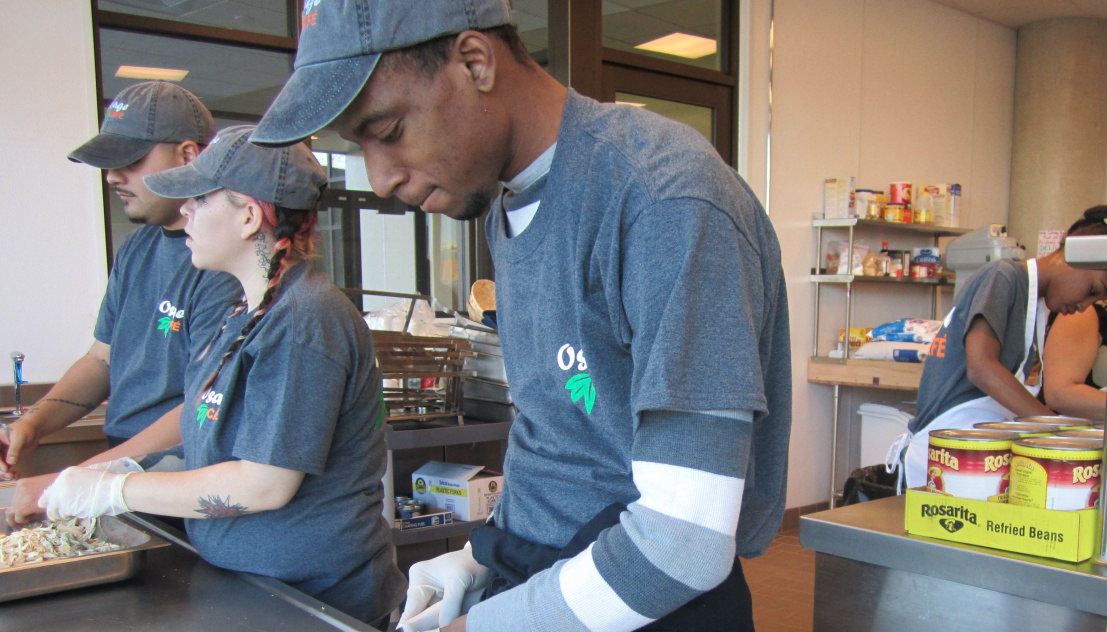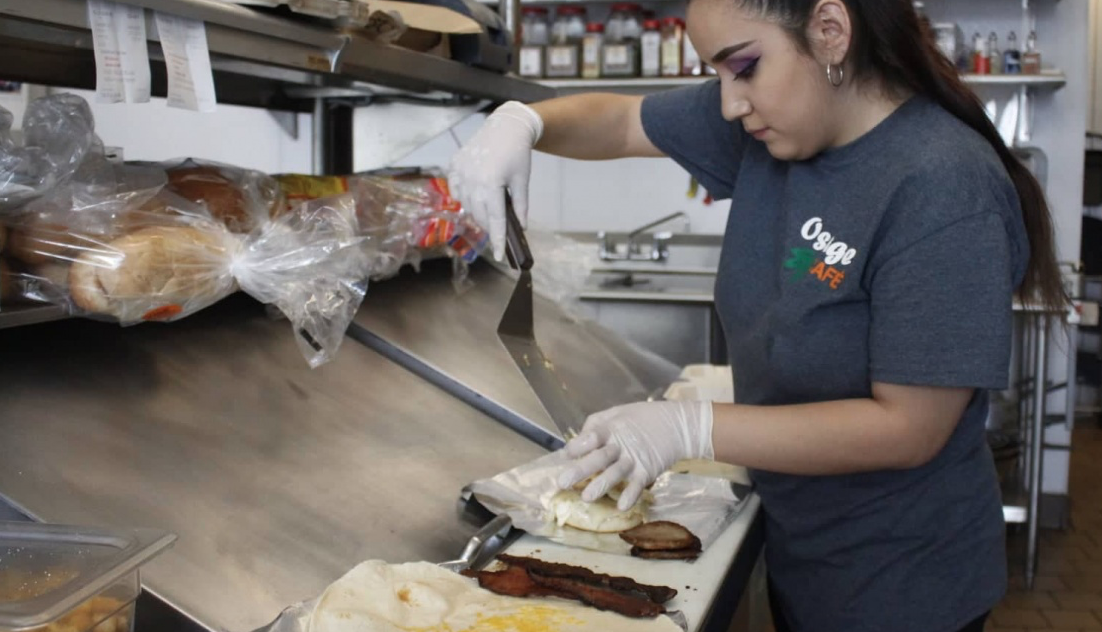
Courtesy of Osage Cafe

Audio By Carbonatix
COVID-19 isn’t the first hardship to affect many members of the Osage Cafe community, notes operations manager Lori Laurita. Still, this year has proven to be a roller coaster that’s underscored the importance of listening to customers and adapting to their needs.
Osage Cafe, supported by the Denver Housing Authority (DHA), serves the La Alma/Lincoln Park neighborhood with fresh meals while operating a culinary arts training and employment program for underserved Denver youth. The nonprofit restaurant’s holistic approach to both food and education has inspired staff to think creatively about how best to provide its services during stay-at-home and safer-at-home measures. Laurita says that mental health check-ins with trainees and people in the neighborhood have been just as important as providing food and employment opportunities.
The idea for the cafe began over a decade ago at a food bank in the Platte Valley, where the DHA started the Youth Culinary Academy to give young adults hands-on experience in a commissary kitchen. Organizers quickly “saw the need and demand to make it bigger and provide for more students,” explains Laurita.
Although temporarily closed for the month of October, the culinary academy exists today at the cafe as a 45-hour training program that teaches students about food safety, recipe reading, nutrition and basic cooking and knife skills. Through the program, trainees gain ServSafe Food Handler Training certification and then have the choice to continue with work experience through an additional 120-hour paid internship at the cafe.
The academy offers more than just occupational skills, Laurita points out; it also teaches soft skills such as customer service and how to manage potential conflicts with employers. The hope is that trainees will gain the ability to advocate for themselves in the workplace and learn more ways to balance the many challenges of work and life, even though many of the students already know about struggle.

The pandemic has caused Osage Cafe to listen more deeply to the needs of the community.
Courtesy of Osage Cafe
Such stresses, be they money-, health- or relationship-related, make it important for Osage Cafe staff to touch base with trainees about their mental wellness. This became more difficult when everything went online during the stay-at-home mandate this past spring. “You’re not having that side conversation, having these moments to really engage their mental wellness,” Laurita continues. “That personal experience has been removed, and now we’re just trying to check in [and say] it matters that you showed up today, and you participated, even if it was just for a minute.”
Mental wellness remained a consideration beyond the trainees, as well. Even though the staff was able to reopen the cafe in May, they worried about vulnerable members of the La Alma/Lincoln Park community who were trying to avoid the virus by staying home.
Osage Cafe is located in the Mariposa development, a DHA development that comprises a mix of subsidized public housing with affordable and market-rate apartments. The building that houses the cafe is also home to senior citizens and people with disabilities. Laurita says that when the cafe reopened in May, staff members weren’t seeing many of their regular customers, and they worried about seniors whose main conversation of the day could be when they came in for a meal.
So they reached out to customers to hear what they needed. While food was a concern, residents expressed boredom and a struggle to connect with the people they were living with. So the staff applied for a second round of Blueprint to End Hunger COVID relief funding (the first allowed them to reopen and rehire trainees in May) and set up a program to create meal-prep food kits.
The kits, modeled after Blue Apron deliveries, included healthy food, art projects and conversation topics for families to share. “It’s just a way to connect a household,” Laurita explains. The prompts asked questions such as, “Tell me one thing you did in the last year that still makes you smile.”
Laurita is proud of how the meal kits allowed Osage Cafe to connect with the community by addressing their concerns in a comprehensive fashion. “We’re really here just to learn what is needed,” she says. “To see what our community partners need. … We’re a family. We have to be.”